Department News & Events
Fall 2023 Newsletter
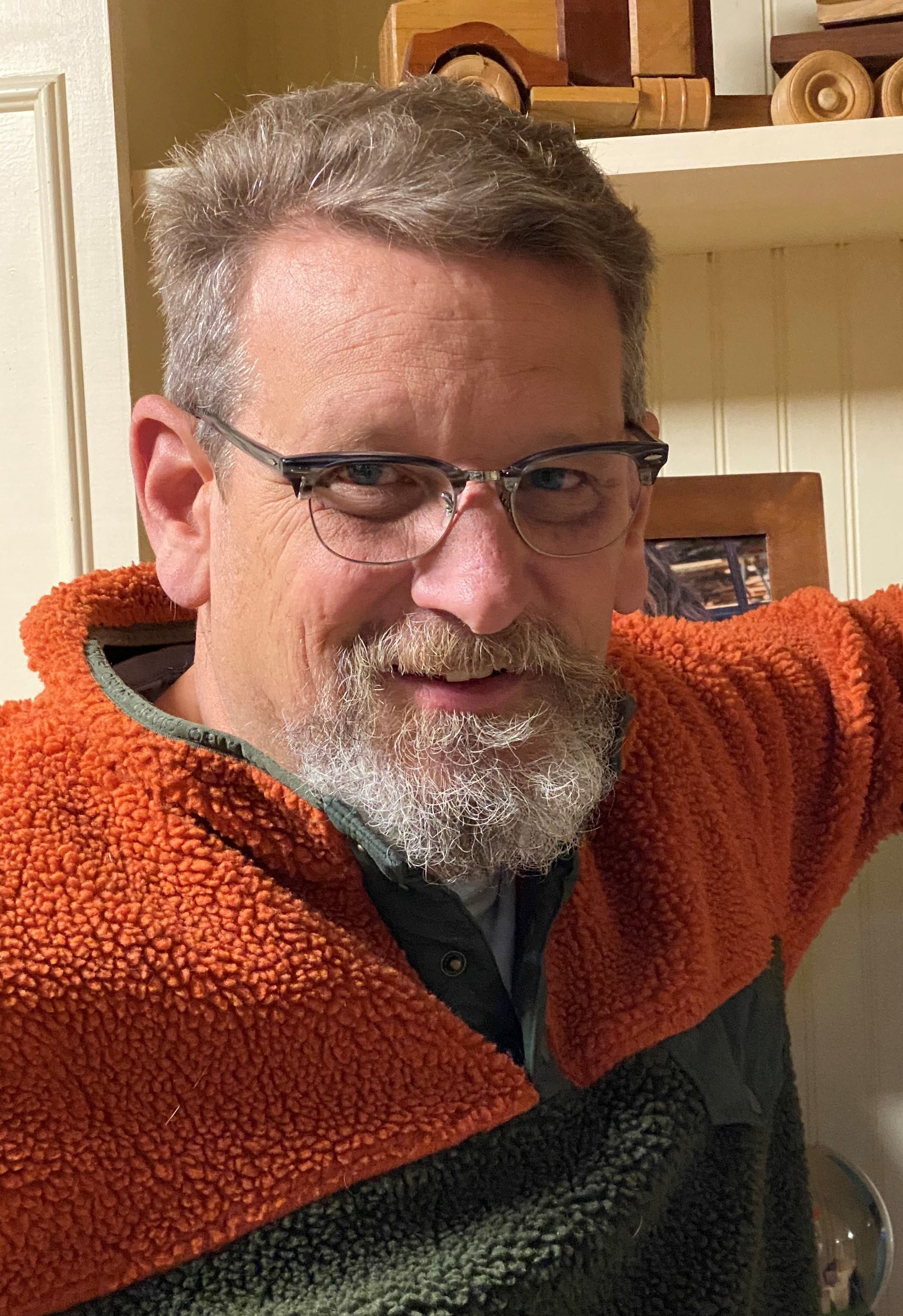
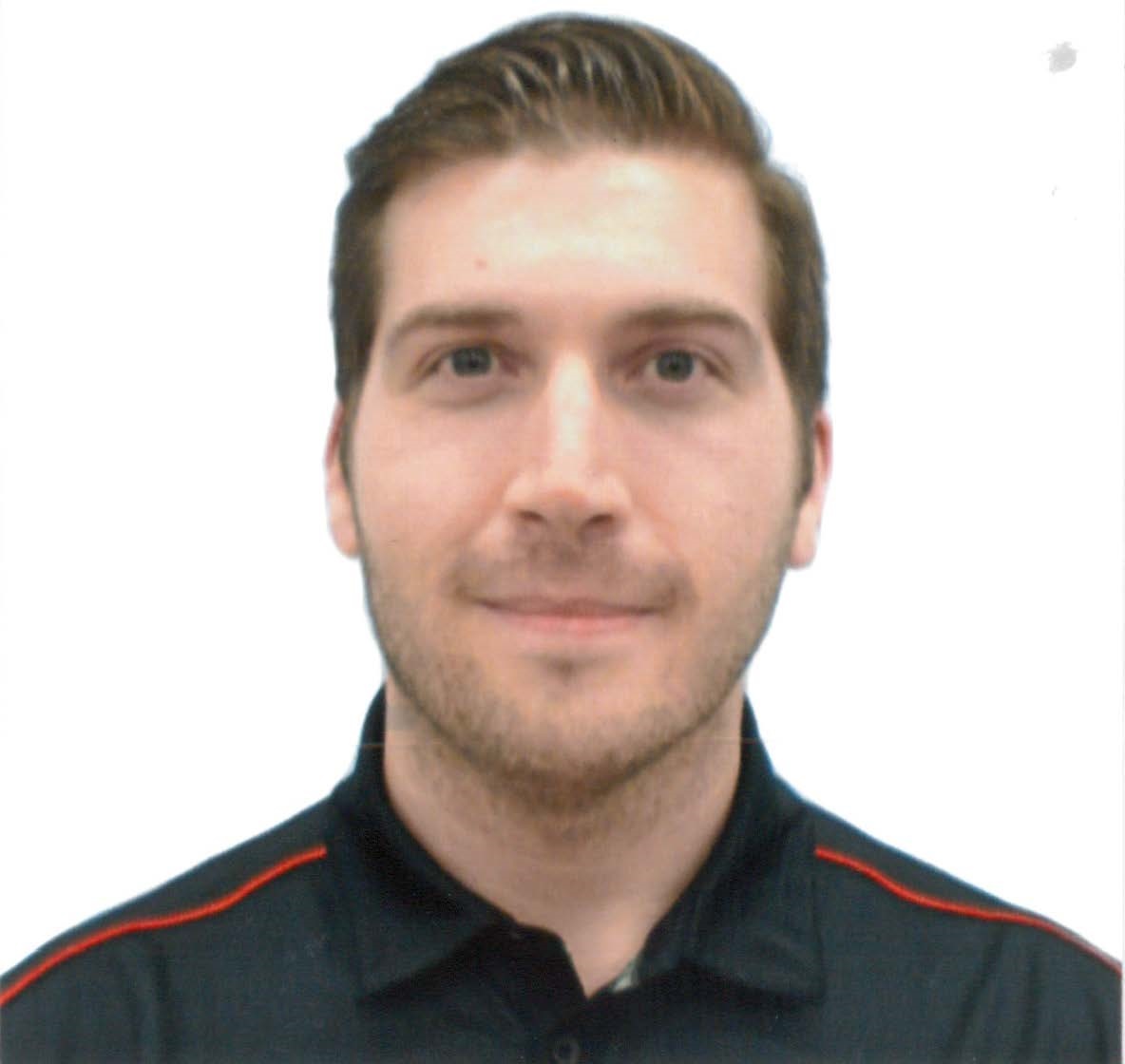 2022-2023 Jerry S. Rawls Distinguished Undergraduate Educator Award.
2022-2023 Jerry S. Rawls Distinguished Undergraduate Educator Award.
Every year the Jerry S. Rawls Distinguished Undergraduate Educator Award is given
to three individuals within the engineering department who leave a lasting impact
on the students that they teach. This year, the Mechanical Engineering Department
has the honor of receiving two of the awards, given to Dr. Turgut Baturalp and Dr.
Jeff Hanson, recognized in the testimonial letters sent in by students who had previously
taken on of their classes. Dr. Baturalp was noted for his ability to bring “new approaches
to the teaching of existing courses such as use of artificial intelligence in programming
and design by generative design techniques.” Similarly, Dr. Hanson was acknowledged
as following the teaching philosophy that a “student will learn best when they know
that their instructor cares about them as an individual.” The Mechanical Engineering
Department is grateful not only for the recognition of the college, but also for the
continued eagerness of professors in the department to provide the best education
to each student.
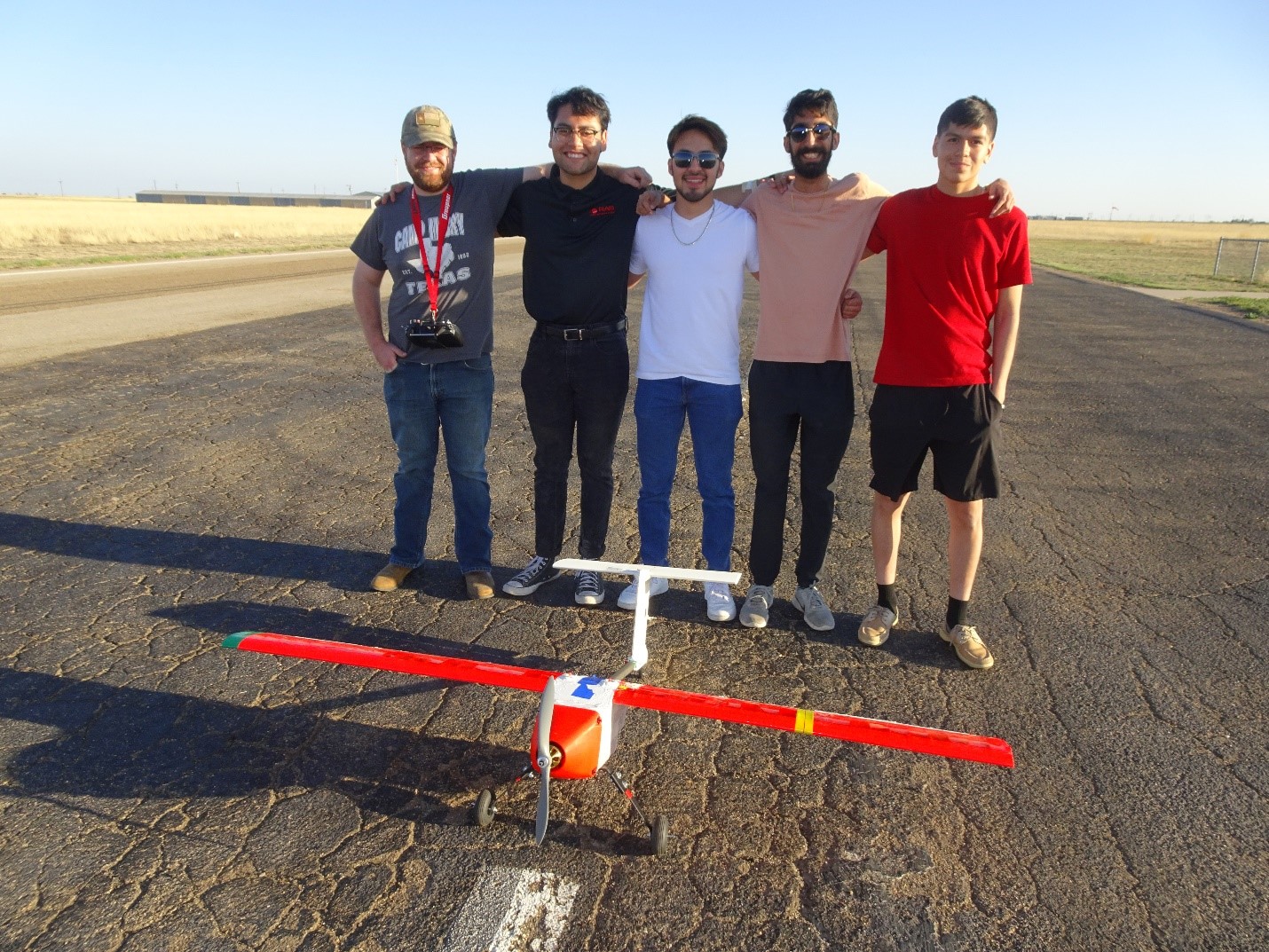 Raider Aerospace Society
Raider Aerospace Society
The Raider Aerospace Society was highly populated this year, with students from many
different backgrounds however with a majority of mechanical engineers. With the support
of corporations, local businesses, and special interest groups, all three divisions—Space
Raiders, Pegasus, and PigeonWorks—were able to pursue their adage, “Ad astra per aspera,”
the Latin phrase meaning, “through hardships to the stars.”
Space Raiders designed, built, and flew a high-powered rocket as part of the Spaceport America Cup competition. In its preliminary flight, the rocket flew an impressive 10,000 feet, reaching its target altitude. Unfortunately, while in competition in New Mexico, challenges were faced. While in flight, neither of the redundant trackers functioned correctly, rendering both the rocket and its data lost.
Pegasus participated in a competition sponsored by the American Institute of Aeronautics and Astronauts where they built a radio-controlled, electric-powered, fixed-wing aircraft. The aircraft was equipped with a high tail design making it capable of flying a simulated electronic warfare mission. Grievously, the intended pilot was unable to make it to the competition in Tucson, Arizona. Despite this challenge, the team placed first in the design proposal.
PigeonWorks continued throughout the year to develop an autoclave for building rocket bodies from composite materials as well as investigated the possibility of competing in NASA's micro-g competition in future years.

ME Design Expo
There were 24 design teams and projects. Each team worked for two semesters to come
up with the design and fabrication of the project. A list of the design projects for
Spring 2023 is as follows.
1. Lane Detection System
2. Campfire Steam Turbine
3. EVTOL Transition Mechanism
4. Tesla Pulse Jet Engine
5. Forklift Hydraulic Fluid Heater
6. Frost Fan
7. Beach Wheelchair
8. Automated T-Post Driver
9. Automated Ratchet Strap
10. Upper Body Exoskeleton System
11. Cycling Aid
12. Star Forge: Space Mining with Plasma
13. Knee Device
14. Floating Arm Trebuchet
15. Telescopic Arm
16. Asteroid Core Examiner Probe
17. Pneumatic Pit Bike
18. Automated Stick Charring
19. Baseball Pitching Machine
20. Small-scale Turbo Jet Engine
21. 7 Seas Water Sample Collection Boat
22. ASME Renewable Vehicular Robot
23. Solar Assist Trike
24. NASA Rover
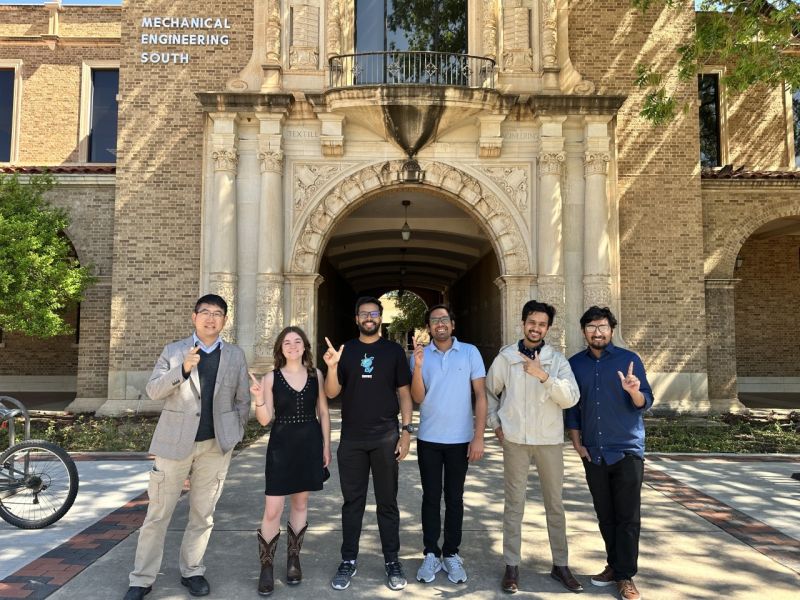 Study Healthcare Engineering at Texas Tech
Study Healthcare Engineering at Texas Tech
After an enriching semester abroad, a bioengineering student from Arts et Métiers
ParisTech - École Nationale Supérieure d'Arts et Métiers, Eva Vanstavel, has successfully
completed her studies at Texas Tech University. The experience has provided her with
invaluable personal and academic growth, and made her realize that she wants to start
her career in healthcare engineering. With her semester abroad now completed, Eva's
journey in bioengineering continues as she prepares to embark on a six-month internship
to fulfill the requirements for her engineering degree from Arts et Métiers ParisTech
- École Nationale Supérieure d'Arts et Métiers.
 NASA´s Human Exploration Rover Challenge
NASA´s Human Exploration Rover Challenge
Students in the Mechanical Engineering Program at Texas Tech formed a team and competed
with a rover vehicle made from scratch in NASA's Human Exploration Rover Challenge.
The team's rover earned them a win in the safety category. The team had to build the
rover from scratch in three months for the competition. During the competition, students
take their vehicles on a course that is approximately half a mile, earning points
on their performance and the efficiency of the rover. Read more
Spring 2023 Newsletter
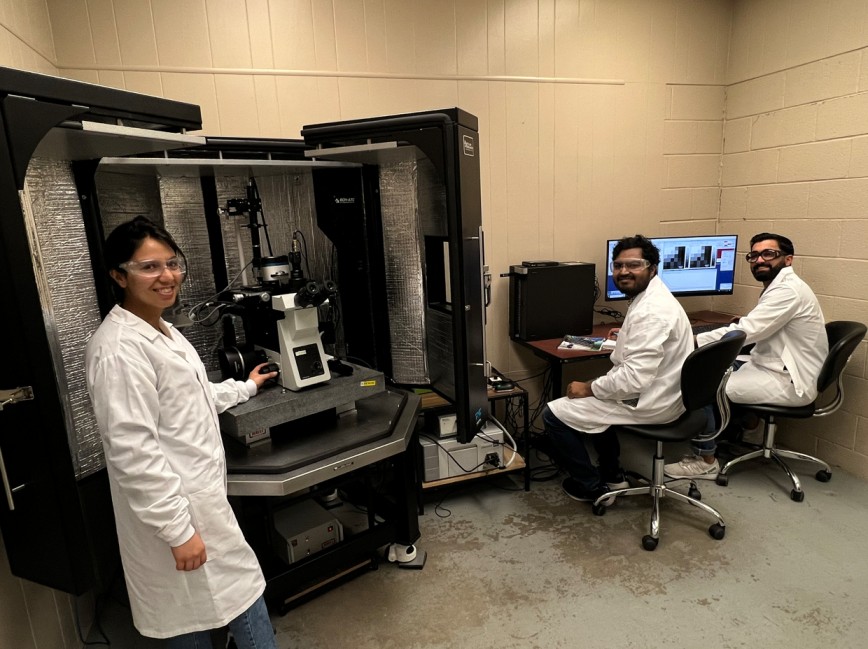
Zhongkui Hong Receives NSF Support for Cellular Mechanical Oscillations Research
Dr. Zhongkui Hong is an Associate Professor in the department. His research is focused
on biomechanics in cardiovascular diseases, and mechanics in biomaterial design and
tissue engineering. In his most recent project, funded by the NSF, he and his team
study knowledge gaps in cellular mechanical oscillations and propose an innovative
approach that seeks to advance efforts to treat and prevent cell migration-relevant
diseases such as cardiovascular diseases and cancers. Periodic oscillations exist
broadly in animal cell mechanics. These mechanical oscillations of cells are thought
to contribute to disease development, such as cardiovascular disease and cancer by
triggering cell migration, moving from one location of the body to another.
To elucidate the molecular mechanism of cellular mechanical oscillations and their functions in cell migration, Dr. Hong's team is employing an innovative approach integrating a series of novel experimental approaches and data-driven mathematical models to monitor cellular mechanical oscillations, cytoskeleton dynamics, as well as cell membrane undulation and polarization.
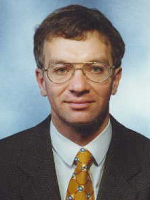 Alexander Idesman Receives Research Award
Alexander Idesman Receives Research Award
Dr. Alexander Idesman, a Professor in the department, recently received the Whitacre
Engineering Research Award. Dr. Idesman's research focuses primarily on computational
mechanics related to the modeling of heat transfer, acoustic and elastic wave propagation,
and stresses in structural components under static and dynamic loadings. Recently,
he has developed a new general numerical method for the solution of partial differential
equations used for the description of the abovementioned problems. The new approach,
called the Optimal Local Truncation Error Method (OLTEM), significantly reduces the
computation time by a factor of 1000 or higher as compared to existing numerical approaches
such as the finite element method, the finite volume method, and the finite difference
method.
Another advantage of OLTEM is the use of unfitted Cartesian meshes for complex irregular
domains and interfaces without the need for complicated mesh
generators. Due to these advantages, many important engineering problems that cannot
be currently solved due to prohibitively large computation time can be
analyzed by OLTEM.
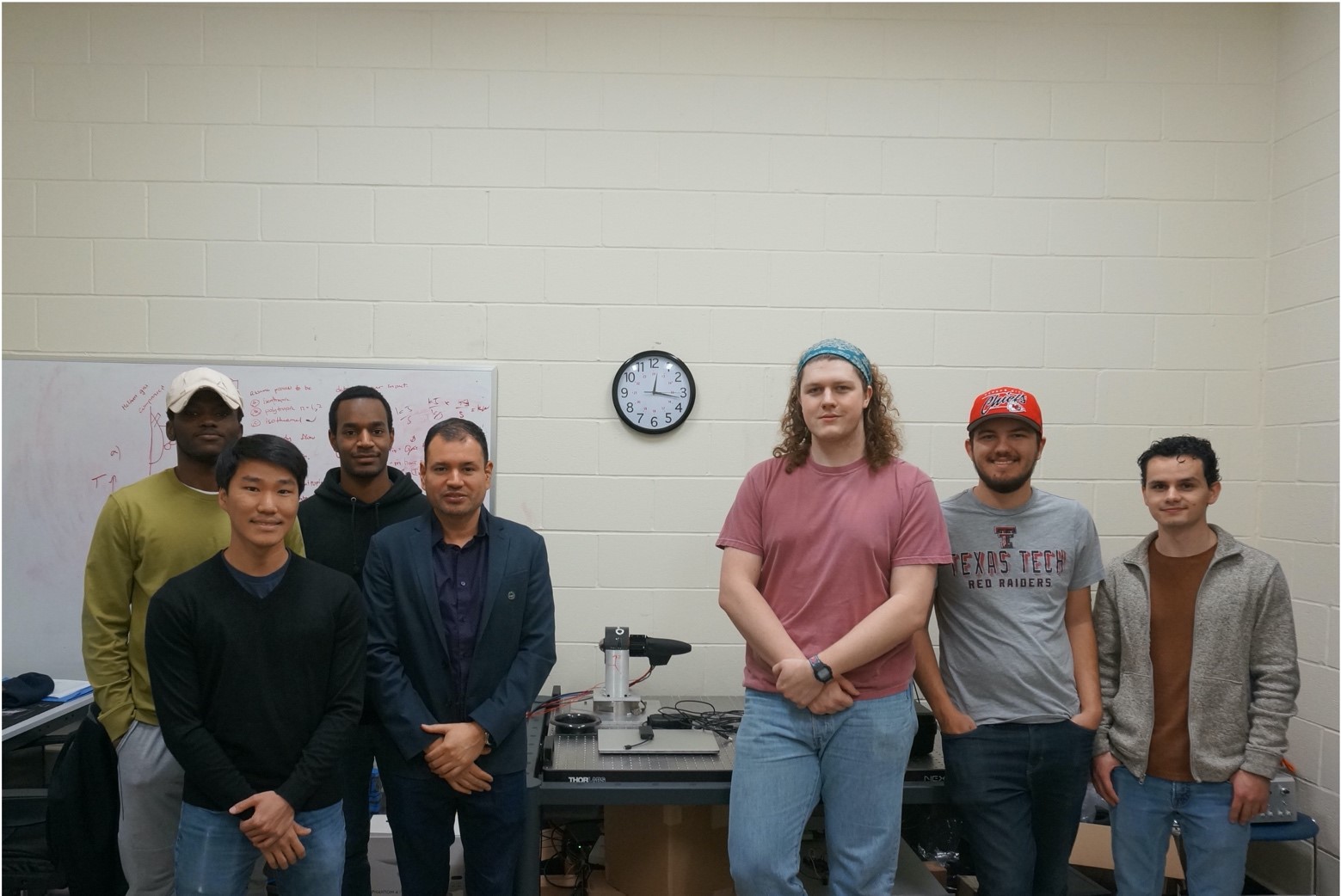
NASA-funded University Student Research Challenge
Texas Tech University is taking part in the NASA- funded University Student Research
Challenge to find ways to make vectored-thrust, ducted-fan, electric vertical-takeoff-and-landing
(eVTOL) vehicles more efficient and less noisy. Led by Dr. Victor Maldonado, the team
of students will be testing a wind-tunnel model of a wing design that reduces exposure
of the ducted fans in cruise flight and a fan-blade design that promises to reduce
noise.
Their eVTOL concept involves 20 tilting fans mounted on four flaps under the trailing edge of a main wing with a heavily under-cambered airfoil that hides the fans in cruise flight, reducing drag. The fans are blended into the fuselage to improve aerodynamic efficiency, taking inspiration from Dr. Maldonado's previous blended wing body aircraft research. The first goal of this NASA project is to test the concept in a wind tunnel to compare it with a baseline design.
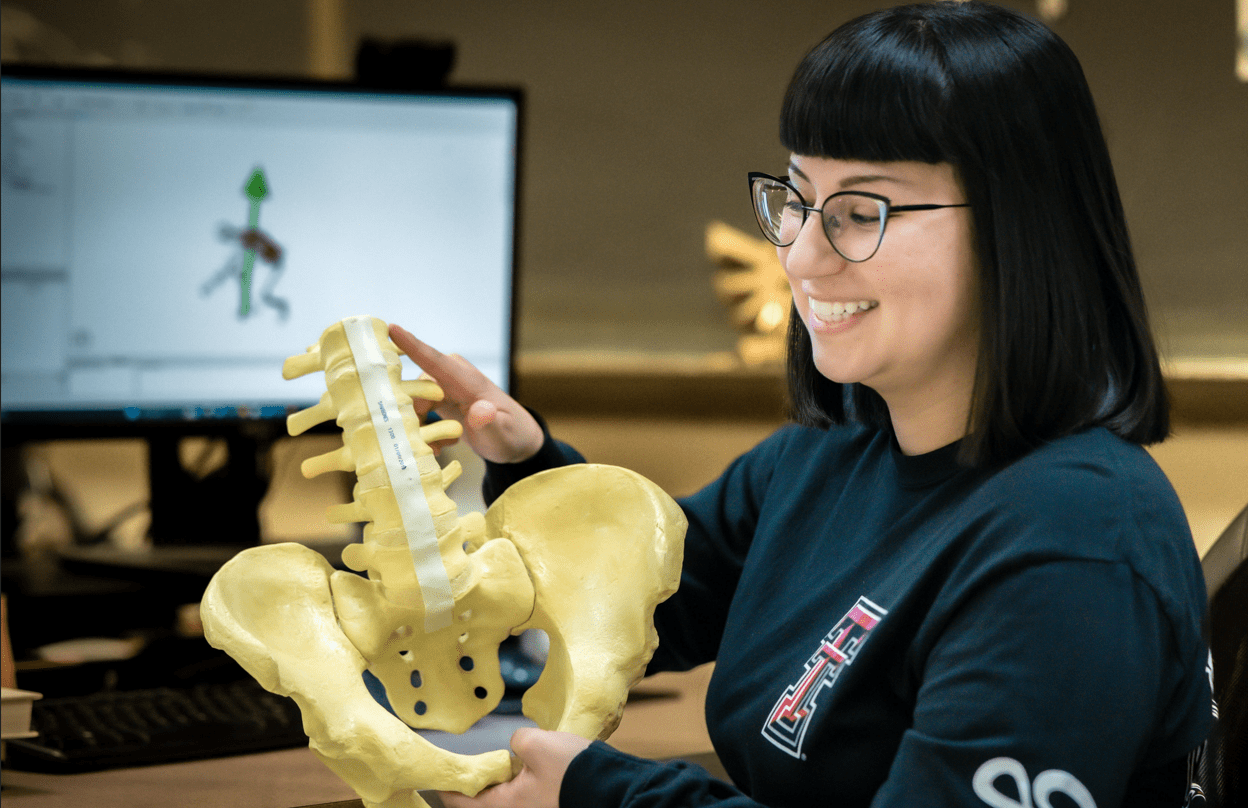
Jazmin Cruz´s Journey at Texas Tech
Jazmin Cruz is a first-generation college student and native of Lubbock, currently
teaching Finite Element Analysis Lab as a part-time graduate instructor in the Mechanical
Engineering department. As a junior at Texas Tech, she attended a job fair and landed
a position at Johnson & Johnson in St. Angelo, where she gained experience in the
medical field in engineering, performing quality assurance. During her time at Johnson
& Johnson, she was mentored by Mary Flora, who encouraged her to go to graduate school
and explore the healthcare engineering route. Returning to Texas Tech, she started
by tutoring and mentoring mechanical engineering students with learning disabilities
at the Techniques Center, which sparked her passion for teaching.
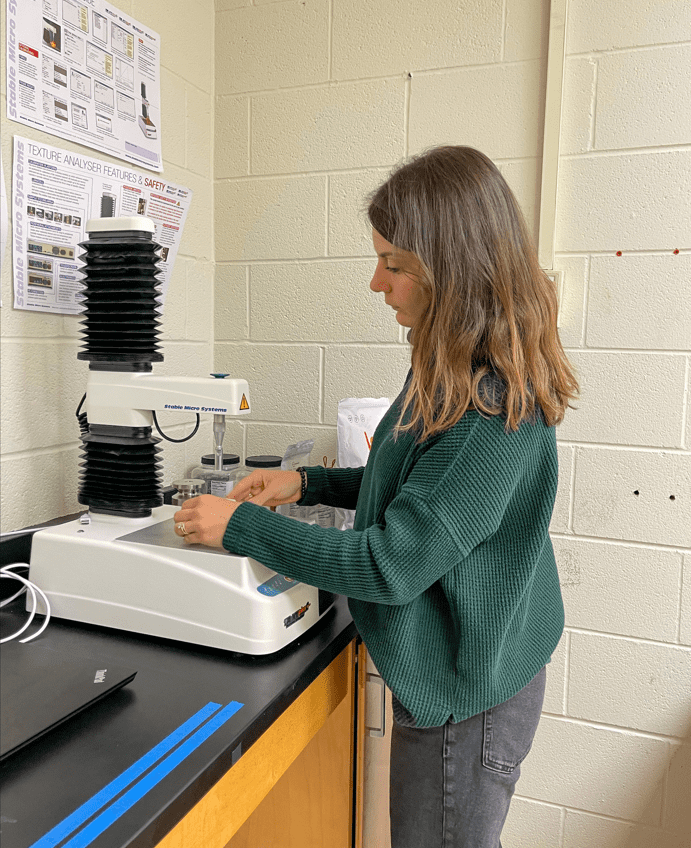
Stefania Chirico on Additive Manufacturing
Stefania Chirico Scheele is currently pursuing a Ph.D. in Mechanical Engineering
with a concentration in Additive Manufacturing in the Food Industry (3D Food Printing),
with an expected graduation date at the end of Spring 2023. She has been working
at the M3D Lab at Texas Tech University with Dr. Paul Egan since Spring 2019, and
more recently has served as a Graduate Part-Time Instructor for the Mechanical Engineering
Department since Summer 2022. During her Ph.D., she published 2 journal articles,
3 conference-proceedings papers, 1 book chapter, and gave 2 invited talks: one at
Purdue University, and another at Santo Domingo Institute of Technology.
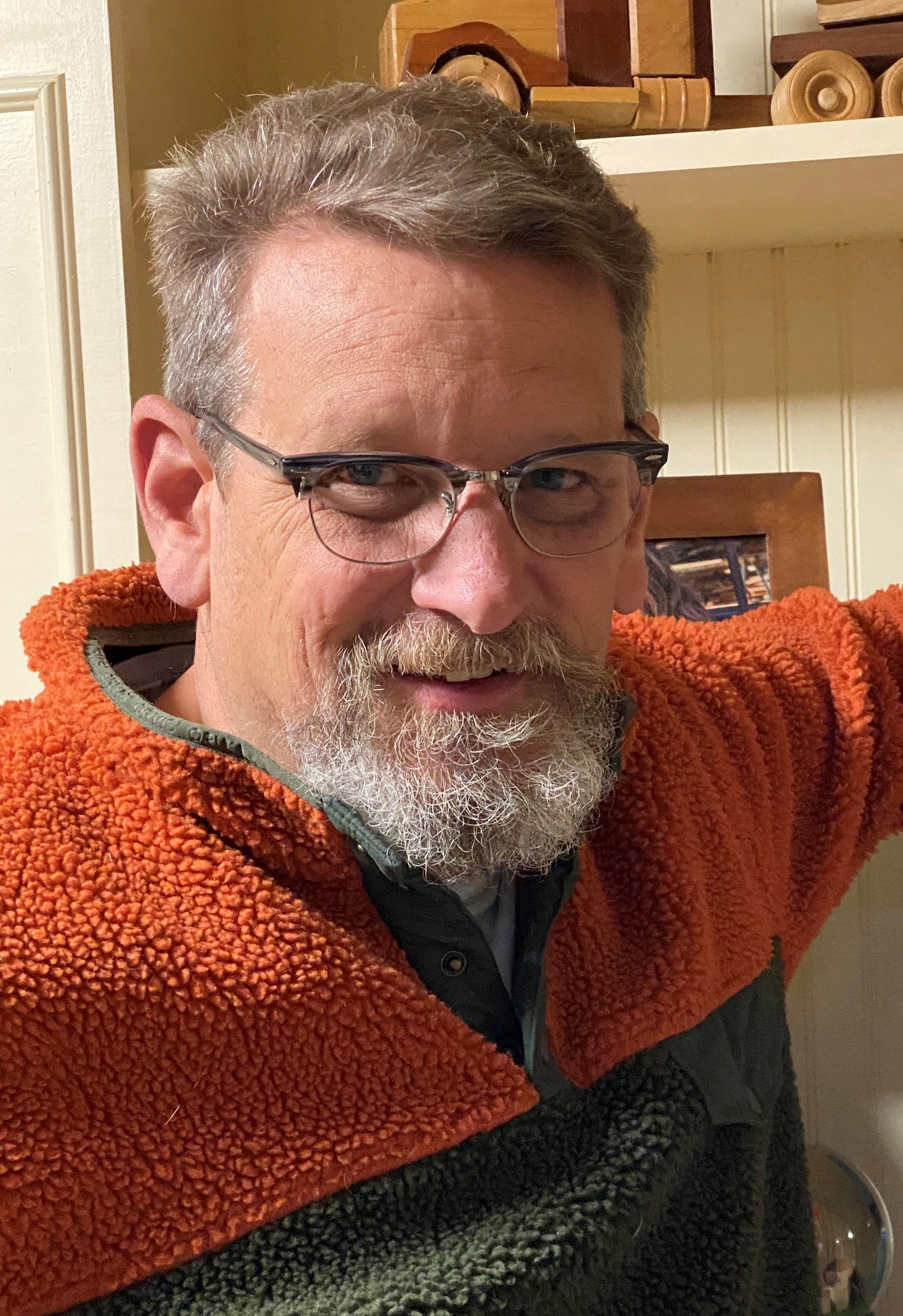 Professional Excellence at Texas Tech Mechanical Engineering
Professional Excellence at Texas Tech Mechanical Engineering
Dr. Jeff Hanson, an Instructor of Mechanical Engineering at Texas Tech Unversity,
was one of the ten recipients of the Professing Excellence award, a formal ceremony
created in 2002 by University Student Housing as a way to recognize Texas Tech instructors
and professors for their impact on the academic success of students living in the
residence halls. Dr. Hanson has taught students from freshmen to seniors since 2003.
Dr. Hanson has a long-standing reputation among students as an accessible, fair, rigorous,
compassionate, and totally student-focused professor. His dedication to teaching is
not only reflected in the success of his students but also in their feedback.
Dr. Hanson has over 17 years of industry work experience in areas of Management, Manufacturing, Robotics, Sales, and Industrial Engineering. He brings this experience into the classroom when teaching students which gives a unique perspective to the material being presented. For the last eight years, Dr. Hanson has served as the Engineering Faculty Liaison in the Sevilla Center in Sevilla, Spain, during the summer study abroad program.
Dr. Hanson spends a large portion of his time tutoring struggling students. If he is in his office, there is a continuous line of students outside waiting for help. Many of these students are not even in his classes, but they know he will help anyone. Dr. Hanson's passion is teaching and helping students develop a passion for engineering.
Fall 2022 Newsletter
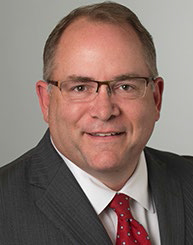 Jerome D. Hall, Jr. “Joey” grew up in Amarillo, Texas. He began his oil and gas career while attending Amarillo
College when he applied for what he thought was a drafting job at Mesa Petroleum;
however, it turne out to be a job in the mailroom. He continued his part-time roles
in the mailroom and later as a maintenance man for the remainder of his time in Amarillo
College and during summers and weekends while he attended Texas Tech. Joey was a first-generation
college student and graduated in 1989 with a BS in mechanical Engineering. After graduation,
he moved back to Amarillo to continue his career with Mesa Petroleum as a Building
Engineer. In 2010 he moved back to Texas to be Vice President of the Eagle Ford Asset
Team where he was responsible for all of Pioneer's activities and was promoted to
Sr. Vice President of South Texas. He is an honorary member of both the Petroleum
and Mechanical Engineering Academies at Texas Tech. He serves on the Dean's Council
for the Whitacre College of Engineering and is a board member for Dallas Area Habitat
for Humanity.
Jerome D. Hall, Jr. “Joey” grew up in Amarillo, Texas. He began his oil and gas career while attending Amarillo
College when he applied for what he thought was a drafting job at Mesa Petroleum;
however, it turne out to be a job in the mailroom. He continued his part-time roles
in the mailroom and later as a maintenance man for the remainder of his time in Amarillo
College and during summers and weekends while he attended Texas Tech. Joey was a first-generation
college student and graduated in 1989 with a BS in mechanical Engineering. After graduation,
he moved back to Amarillo to continue his career with Mesa Petroleum as a Building
Engineer. In 2010 he moved back to Texas to be Vice President of the Eagle Ford Asset
Team where he was responsible for all of Pioneer's activities and was promoted to
Sr. Vice President of South Texas. He is an honorary member of both the Petroleum
and Mechanical Engineering Academies at Texas Tech. He serves on the Dean's Council
for the Whitacre College of Engineering and is a board member for Dallas Area Habitat
for Humanity.
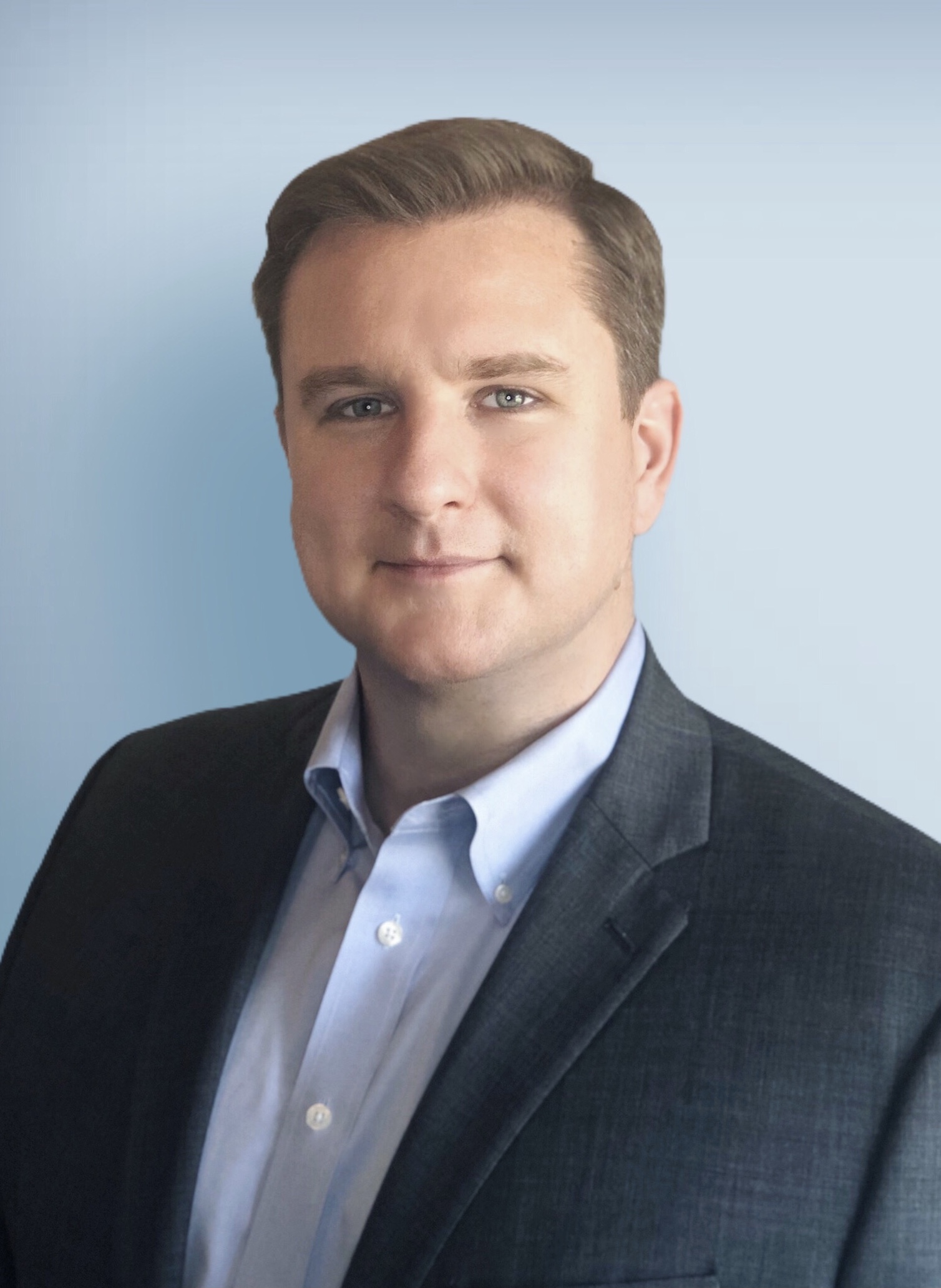 Mark Olsen began his career as a drilling engineer, providing technical support for both onshore
and offshore drilling operations within the United States. Three years into his career,
Mark leveraged his technical knowledge to negotiate a $100M rig contract for an exploration
venture in the Middle East. He then served as the lead engineer for an offshore platform
in Sakhalin, Russia where he drilled the world's longest oil and gas well (42,650
ft) and drilled ExxonMobil's first multilateral well. Mark later moved to the Production
Company where he supervised a team of engineers to optimize oil and gas production
for dozens of assets across eight different countries. Since his graduation, he has
remained active in the Whitacre College of Engineering, supporting student development
through meaningful, educational experiences. Mark has been an active member of ExxonMobil's
recruiting team at Texas Tech for over 10 years and has placed dozens of students
into internship and full-time positions within his company.
Mark Olsen began his career as a drilling engineer, providing technical support for both onshore
and offshore drilling operations within the United States. Three years into his career,
Mark leveraged his technical knowledge to negotiate a $100M rig contract for an exploration
venture in the Middle East. He then served as the lead engineer for an offshore platform
in Sakhalin, Russia where he drilled the world's longest oil and gas well (42,650
ft) and drilled ExxonMobil's first multilateral well. Mark later moved to the Production
Company where he supervised a team of engineers to optimize oil and gas production
for dozens of assets across eight different countries. Since his graduation, he has
remained active in the Whitacre College of Engineering, supporting student development
through meaningful, educational experiences. Mark has been an active member of ExxonMobil's
recruiting team at Texas Tech for over 10 years and has placed dozens of students
into internship and full-time positions within his company.
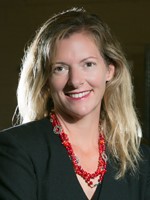 This year, Dr. Pantoya celebrates the 22nd anniversary of the Combustion Lab. With their grant funding growing
and many graduate students involved, the Combustion Lab has been very successful.
This year, Dr. Pantoya celebrates the 22nd anniversary of the Combustion Lab. With their grant funding growing
and many graduate students involved, the Combustion Lab has been very successful.
She has published over 200 archival journal publications with graduate or undergraduate
students as the first author and several children´s books introducing the engineering
design process to young kids (Designing Dandelions, Engineering Elephants, and Optimizing
an Octopus). Throughout the years, Dr. Pantoya has been awarded many prestigious awards
including the US Presidential Early Career Award (PECASE) and the DoD Young Investigator
Award. She is also the director of the growing STEMS Consortium. Her group´s vision
is to promote the development of safer and more effective energetic materials through
formulation development and rigorous combustion characterization analyses. Her group
receives research grants from various federal agencies, particularly Department of
Energy and Department of Defense.
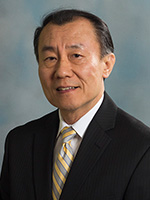 Dr. Ming Chyu closes the gap between healthcare and engineering.
Dr. Ming Chyu closes the gap between healthcare and engineering.
This is a year of reward for Dr. Chyu who is featured in the Top 100 Innovators and
Entrepreneurs Magazine due to his accomplishment in healthcare engineering. Dr. Chyu
is also recognized as the Pioneer in Healthcare Engineering in the cover story of
the Exeleon Magazine. In addition, he is one of the top five dynamic leaders in healthcare
recognized by CIO Times, a respected magazine in the international business world.
Dr. Ming-Chien Chyu, Founding President of Healthcare Engineering Alliance Society (HEALS), is one such erudite personality who has been bridging the gap between healthcare and engineering for over 15 years. “Engineering has been playing a crucial role in serving healthcare, bringing about revolutionary advances in healthcare. Many healthcare problems have benefited from engineering solutions, while many advancements in healthcare stem from breakthroughs in engineering/technology. Healthcare engineering encompasses engineering involved in all aspects of healthcare,” mentions a passionate Dr. Chyu. A transformational leader in every right, Dr. Chyu spearheads over 15,000 members and followers in a quest to bridge the gap between healthcare and engineering, advancing the industry, and promoting collaborative and innovative exchanges between the two domains.
As an engineering professor, Dr. Chyu helped many of his students explore job opportunities
in the healthcare industry. In doing so, he has realized that there is a deficiency
in the current engineering curricula and students should be trained to work in healthcare.
Due to this, he began exploring the industry of healthcare and introduced several
programs that would tackle this burgeoning deficiency
Engineering Professor Looking to Mitigate Injury Risks for Military Free-Fall Jumpers
Dr. James Yang, a professor of Mechanical Engineering, recently received a $450,000
grant from the U.S. Army Medical Research and Development Command (USAMRDC) to model
the biometrics of parachute opening shock. The focus of his project is to study what
happens inside the human body during parachute opening shocks.
His goal is to develop a multiscale human model to conduct biomechanical analyses
where they can study the parachutists' potential injuries during this action, seeking
the improvement of capabilities and safety of these operations. The results will be
used by instructors and developers to prevent, reduce, screen, and diagnose musculoskeletal
injuries in military free-fall parachute jumps. His research is designed to lower
injury rates in paratrooper´s bodies, but this is not the only project in mind. “Later
we'll do other aspects,” Yang said. “ The DOD is interested in what happens from the
time soldiers jump out to the landing, so this is just the first project we will be
working on.” Yang's research is part of a larger effort by the U.S. Army Aeromedical
Research Laboratory (USAARL) and the U.S. Army Research Institute of Environmental
Medicine (USARIEM) entitled “Parachute Health Hazard Effects.” “Our soldiers are our
most important asset,” said Song-Charng Kong, chair of the Department of Mechanical
Engineering. “Dr. Yang's research will mitigate the health risks in parachuting and
provide additional protection to our soldiers. The health benefits to the soldiers
go far beyond their military careers. The impact of Dr. Yang's work is tremendous.”
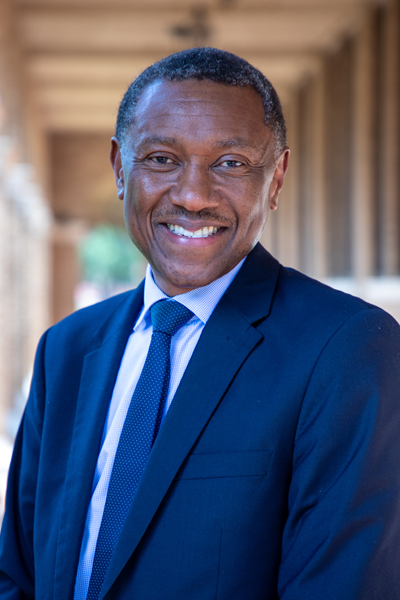 Stephen Ekwaro-Osire received a five-year grant to help increase the capabilities
of the undergraduate engineering program at Jimma University in Ethiopia.
Stephen Ekwaro-Osire received a five-year grant to help increase the capabilities
of the undergraduate engineering program at Jimma University in Ethiopia.
Dr. Stephen Ekwaro-Osire, a professor of mechanical engineering, received a five-year,
$816,392 grant from Jimma University in Ethiopia to help lead the institution's Pathway
Toward Global Engineers program. “This grant was motivated by the pandemic disruptions,
and there are two objectives,” Ekwaro-Osire said. “One is to increase the capabilities
and quality of the undergraduate engineering students from Jimma University. The second
is to increase the capacity – meaning the faculty, the facilities, everything – to
offer high-quality engineering programs.” Ekwaro-Osire will work with professors and
administrators at Jimma University as well as local industry members and stakeholders
during this process. “We aren't going to be physically teaching classes,” Ekwaro-Osire
said, “but we will conduct workshops for faculty and administrators on how to do certain
things and, with other additional interventions and collaborations, a shift in the
educational paradigm will be facilitated.” Jimma University´s purpose is to have a
program that is shock responsive. With 12,000 students, 13 engineering bachelor´s
degree programs, and 1,000 undergraduate engineers a year, this is a challenge that
they are excited about. Lloyd Heinze, a professor in the Bob L. Herd Department of
Petroleum Engineering, also is involved and sees the opportunity for Texas Tech to
recruit potential graduate student candidates for our college.
Department of Mechanical Engineering
-
Address
Texas Tech University, Box 41021 | Lubbock, TX 79409 -
Phone
806.742.3563 -
Email
mechanical.engineering@ttu.edu
